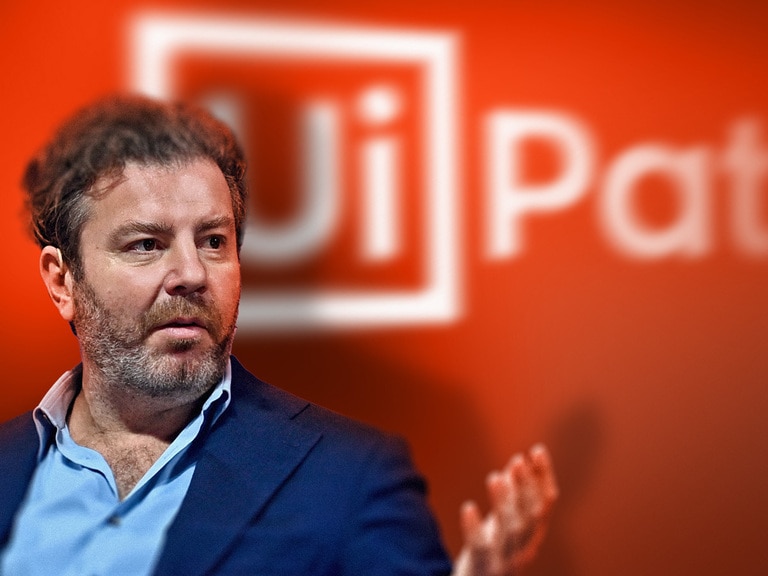As Sundar Pichai takes the helm as chief executive of Google parent Alphabet [GOOGL], traders will be asking if there’s new opportunity in a share price that keeps on growing
On 3 December Alphabet announced that co-founders Larry Page and Sergey Brin had decided to step back from their executive roles, effective immediately. In the same breath Alphabet announced that Sundar Pichai, employee at the company for 15 years and CEO of Google since 2015, would be taking over the reins.
In the week following the announcement, Alphabet’s share price rose nearly 2%. So far this year Alphabet has gained by 28% (through 19 December).
In his role, Pichai will oversee the range of technology projects Alphabet is involved with, alongside keeping control of his previous charge, Google. He will be responsible for steering the likes of Alphabet’s Waymo driverless car project and healthcare research company Calico, among many others.
Page and Brain meanwhile will “continue their involvement as co-founders, shareholders and members of Alphabet’s board of directors”. The pair together reportedly hold 51% of a special class of voting stock, effectively enabling control over voting decisions.
With so many plates to spin will the new CEO be able to maintain the 111% share price growth Alphabet has seen since it was incorporated as Google’s parent company in 2015?
Why traders are optimistic about Pichai
While Alphabet can easily be considered one of the most successful tech companies on the planet, investors have had their fair share of criticisms of Page and Brin.
One such criticism is that, especially after creating a parent company for Google, Alphabet needs to be more transparent about the many arms of its businesses and how much these are making. Regulators have reprimanded the company for not disclosing more information according to The Motley Fool, in particular over a lack of reporting on YouTube. As such, many are hopeful that under Pichai things may change and improvements may be seen in Alphabet’s relationship with shareholders.
Some are also hopeful that Alphabet will repurchase more stock under Pichai. The company has repeatedly been criticised for being too conservative in its offering throughout the years. JP Morgan analyst Doug Anmuth recently indicated that Alphabet may be “more amenable to larger share buybacks”, according to MarketWatch.
Investors will also likely be hoping that under Pichai Alphabet will finally consider paying dividends to its shareholders. While peers such as Apple and Microsoft currently offer dividend yields of 1.10% and 1.32% respectively, Alphabet offers nothing.
“[Alphabet may be] more amenable to larger share buybacks” - JP Morgan analyst Doug Anmuth on Alphabet's buyback intentions
Recent performance
The gains of 28% seen in Alphabet’s share price this year, while positive, still lags behind the Nasdaq Composite (32.4%) and other tech giants such as Apple [AAPL] (77%) and Facebook [FB] (51.9%). At Tuesday’s close, however, Alphabet reached a fresh all-time high of $1,360.70.
At the end of October, the company reported its results for the three months ended September 30, highlighting a 21% year-over-year increase in revenue. This is just the latest in a long line of strong quarterly growth – Google has generated average quarterly revenue growth of 23% for nearly a decade, according to Barron’s.
However, its earnings have not kept up with its revenue growth, particularly as the company continues to invest in loss-making businesses. Alphabet’s businesses outside of Google are losing around $4 a share a year, the publication reports.
The outlook
The company’s share price has gained by as much as 70% in the past three years, but despite strong fundamentals its valuation multiples are modest, according to Guru Focus. The stock is trading at an enterprise value-revenue multiple of 5.24 and a price to earnings ratio of 28.75 – lower than many tech companies, highlighting that it may still have room to grow.
| Market cap | $935bn |
| PE ratio (TTM) | 29.10 |
| EPS (TTM) | 46.60 |
| Return on equity (TTM) | 17.88% |
Alphabet share price vitals, Yahoo finance, 20 December 2019
However, Alphabet has always been an outperformer, Guru Focus notes, and is likely to remain a relevant investment for the next decade, making it a decent addition to a long-term portfolio. At the moment, it predicts that the expected price of Alphabet in 2020 will reach new highs of around $1504.
This is backed up by analysts at Stifel, who recently upgraded Alphabet from a hold to a buy and boosted their price target from $1,325 to $1,525 – which would represent a 12.5% increase on current levels. Strong third-quarter sales growth and a more robust outlook for the digital advertising industry led to the upgrade, Market Insider reports. Google’s key competitor in the space, Facebook, was also upgraded.
What’s the downside?
Alphabet has experienced a lot of employee unrest in the past year. Pichai is inheriting a company with increasing internal tensions, and growing external tensions with regulators, according to CNBC.
When Alphabet signed off a $90m pay out to Android co-founder Andy Rubin, who was accused of sexual misconduct, it triggered 20,000 employees to walk out of office in a company-wide protest. Since then there have been repeated incidents where employees have protested problematic policies and government contracts, CNBC notes.
Additionally, the company will face growing regulatory scrutiny in coming years. Earlier this year the Department of Justice (DoJ) announced that it is opening a broad antitrust review of big tech companies. Since then Alphabet has also confirmed that it is under investigation by the DoJ.
The combination of all of these headwinds will make for a storm that Pichai will have a hard time negotiating. Meanwhile, how these challenges escalate or otherwise will like impact on the stock’s performance throughout the new year and into the future.
Disclaimer Past performance is not a reliable indicator of future results.
CMC Markets is an execution-only service provider. The material (whether or not it states any opinions) is for general information purposes only, and does not take into account your personal circumstances or objectives. Nothing in this material is (or should be considered to be) financial, investment or other advice on which reliance should be placed. No opinion given in the material constitutes a recommendation by CMC Markets or the author that any particular investment, security, transaction or investment strategy is suitable for any specific person.
The material has not been prepared in accordance with legal requirements designed to promote the independence of investment research. Although we are not specifically prevented from dealing before providing this material, we do not seek to take advantage of the material prior to its dissemination.
CMC Markets does not endorse or offer opinion on the trading strategies used by the author. Their trading strategies do not guarantee any return and CMC Markets shall not be held responsible for any loss that you may incur, either directly or indirectly, arising from any investment based on any information contained herein.
*Tax treatment depends on individual circumstances and can change or may differ in a jurisdiction other than the UK.
Continue reading for FREE
- Includes free newsletter updates, unsubscribe anytime. Privacy policy





